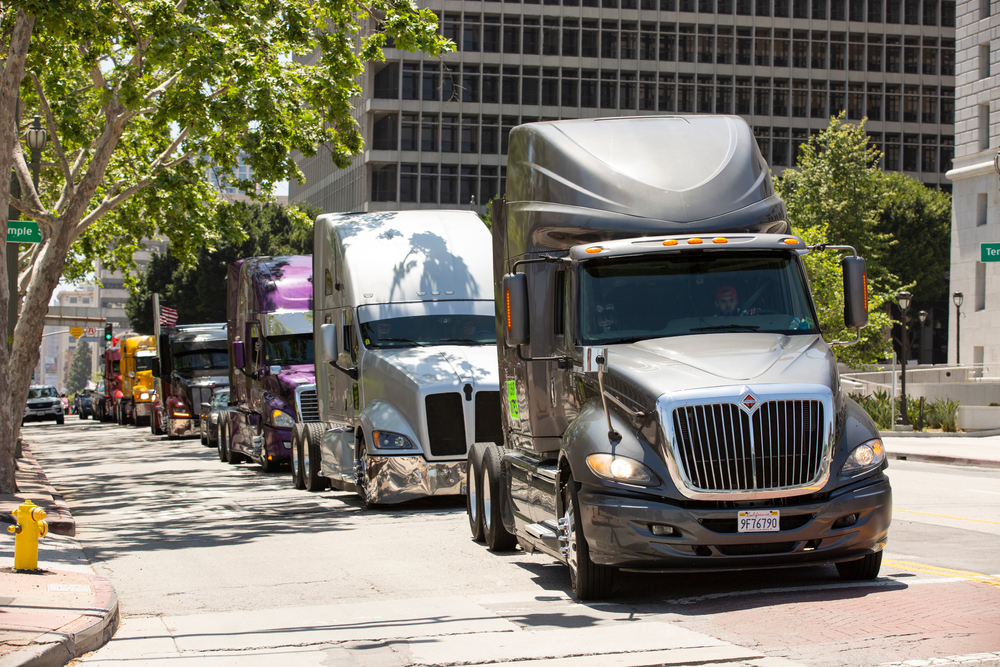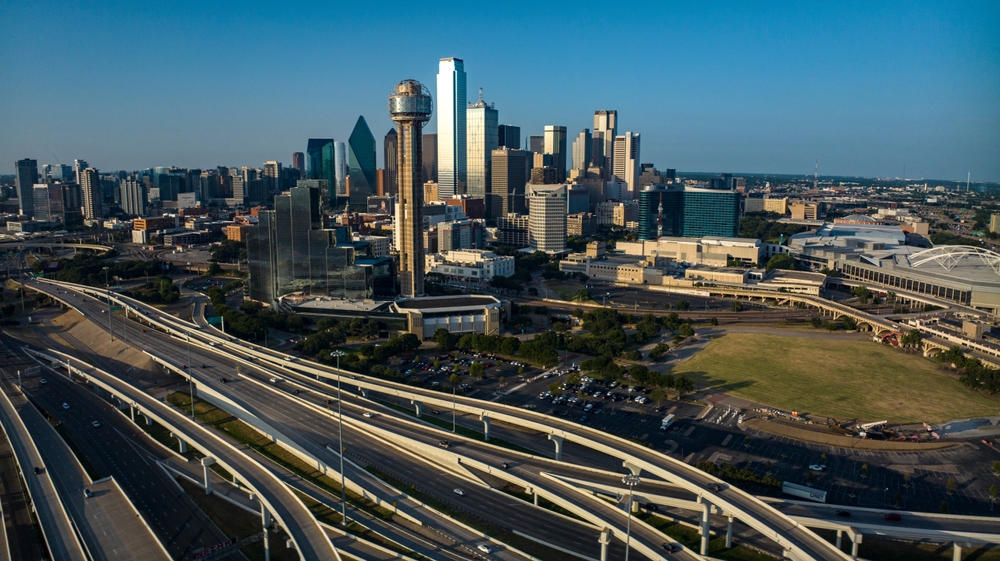
Congress recently negotiated a massive infrastructure package reportedly worth more than a trillion dollars. Although members of Congress widely disagreed about what should be considered “infrastructure,” roads, highways, and bridges are expected to get a significant makeover in the coming years.
That may sound well and good to everyday people fed up with potholes, but long-haul truck drivers sometimes experience excessive delays due to road and bridge construction. Given the fact some delays cost independent truckers hours of on-duty time and freight carriers an inefficient use of wages, should industry leaders start complaining about too many infrastructure projects?
Among the many examples of seemingly excessive delays, road construction spanning from New York City around the George Washington Bridge through New Haven, Connecticut, routinely turns I-95 into a parking lot. During the summer months, without school traffic to contend with, delays typically ranged from an additional 90 minutes to 3 hours, depending on the time of day and the all-too-common car wrecks. At no fault of their own, truckers can lose upwards of one-third of their 8-hour on-duty time. Even under the 11-hour standard following 10 hours off, a trucker can lose 25 percent of his or her earning capacity due to poorly conceived road work impediments.
The I-95 corridor running through New York City and western Connecticut isn’t the only area an overabundance of road work is having a chilling effect on freight haulers. Across Illinois and Minnesota, construction delays on and around I-90 include onerous slowdowns, detours, and reports indicate even more toll station projects are underway.
Members of Congress recently voiced disagreement about how highway and bridge construction projects should be funded. Some want them paid for with federal taxes and others prefer on-site tolls. The latter means professional truck drives can anticipate paying more to sit in traffic while their salaries are negatively impacted. New York’s pot-hole-ridden George Washington Bridge toll reportedly stands a $22.25. . . per axle. Talk about adding insult to injury.
According to a Consumer Affairs report, these rank among the states that require the most road work.
- South Carolina
- Louisiana
- Hawaii
- Rhode Island
- Delaware
- Oklahoma
- West Virginia
- Mississippi
- New Mexico
- Michigan
Lists about the country’s worst highways include the following.
- Brooklyn-Queens Expressway, New York, New York
- Claiborne Expressway (I-10), New Orleans, Louisiana
- Inner Loop North, Rochester, New York
- I-244, Tulsa, Oklahoma
- I-275, Tampa, Florida
- I-345, Dallas, Texas
- I-35, Austin, Texas
- I-35, Duluth, Minnesota
- I-5, Seattle, Washington
- I-81, Syracuse, New York
- I-980, Oakland, California
- Kensington Expressway, Buffalo, New York
- North Loop (I-35/70), Kansas City, Missouri
- Scajaquada Expressways, Buffalo, New York
- The Great Highway, San Francisco, California
Are these and others about to gate torn up and repaired? Given that leaders in Washington, D.C., are about to fund wide-reaching road and bridge construction projects, should CDL professionals anticipate more poor planning and increased traffic delays? Is it time to start complaining to officials to stagger construction projects and times to allow hard-working truckers to make deliveries in a timely fashion? You betcha.
Sources: consumeraffairs.com, planetizen.com











I’m interested to apply I’m a hardworking person
I travel through Connecticut and New York on a daily basis. The road construction isn’t the worst part. It’s the 4 wheelers. My company charges their costumer a premium to deliver here daily. A 4hour trip has taken me 9 hours which makes turning the run impossible. I unfortunately have to get a hotel.
You’re fortunate to find a hotel to park at if you’re driving a big rig. Parking is nearly impossible to find out there. I use to drive during the late night and park north in Connecticut or in Jersey at the last rest area. They were working on that road last time I went out there in early 2016! It’s totally ridiculous to take 6+ years and still not be done.
Not sure how the crap roads in Indiana are not in the top 5. Oklahoma, Indiana, and Kentucky have the worst roads I hav ever driven. The new “infrastructure bill” is not going to make anything better. It’s just going to slow everything down more. Anything run by the govt is going to be run poorly.
Totally agree about Indiana. That state I thought would be close to the top.
They forget I-75 and I-285 in Atlanta, is really bad.
Did anyone read the part of the new “infrastructure bill” that requires a FULL accounting for every penny of tax es that is spent on these projects? Neither did I. My guess is, this is just another in a long and growing line of bills intended to buy votes and the loyalty of labor unions.
My two cents worth – Crossing the bridge from Cincinnati, Oh to Covington, Ky takes almost an hour for the last 2 miles due to construction. Another bridge has been needed there for decades.
I don’t drive a truck, but the road construction is a royal pain in the ass for us 4 wheelers. You truck drivers have my sympathy.
New infrastructure bill pretty much leaves out roads and bridges. Sniffy and the dems paid for everything but roads/bridges. MAYBE LESS than 15% for roads and bridges. Make your vote count in 2022. Stop the madness!!
It seems so often at least in Michigan that reconstruction of parallel roads is done simultaneously, adding to motorists frustration. For example, three north-south interstates are being repaired, with lane closures. I-75 is being rebuilt in northern Detroit suburbs, I-275 has 2 of 3 lanes closed by Detroit Metro Airport, and US-23 has one of 2 lanes closed south of Flint. There seems to be no coordination of work between jurisdictions. Only to get worse as money flows.
Might want to add I-85 from Charlotte.
They are being fixed on the back of truckers anyway. The dot lies about the damage trucks do to the roads and its been proven